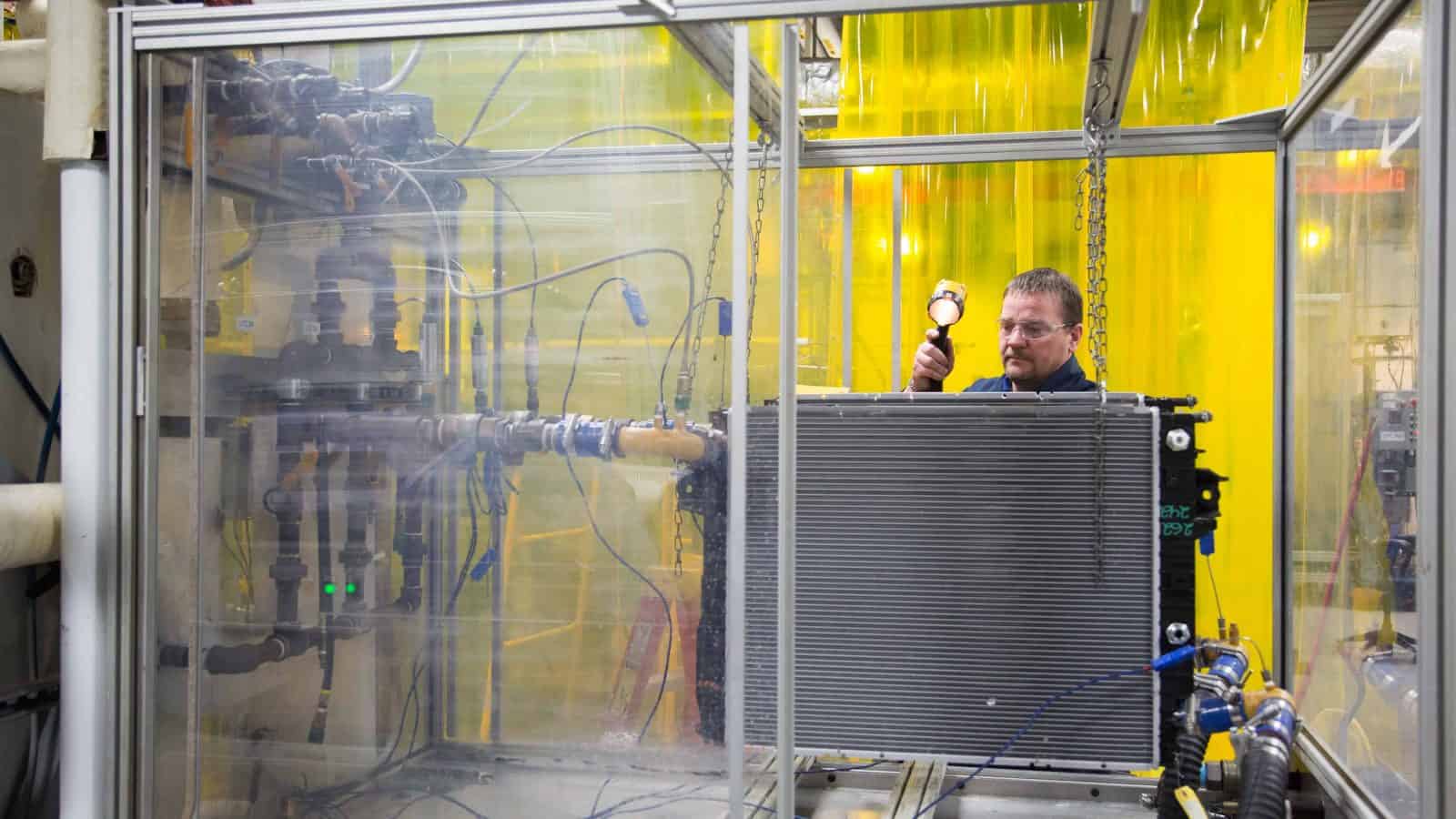DOE Proposes Power-Line Fast Tracking

The federal permitting process for major transmission lines should soon get a lot easier to navigate, according to POLITICO’s ENERGYWIRE (subscription).
What’s going on: Last Thursday, the Department of Energy proposed “completing environmental reviews and other federal approvals for electric power lines within two years.”
- In addition, “DOE would be the lead agency conducting environmental impact statements and other federal reviews for transmission projects so that developers wouldn’t need to go through multiple federal agencies.”
- Once finalized, the framework will be called the Coordinated Interagency Transmission Authorization and Permits Program.
Why it’s important: The draft revision—a response to the recent debt-ceiling deal—could slash the time it takes to get long-distance power lines built and operational.
- This “could help integrate more solar and wind into the U.S. energy resource mix,” according to ENERGYWIRE.
- Though Congress authorized the DOE as lead federal agency in reviewing electric power lines, this proposal marks the first time the authority has been “formally proposed,” a source told the news outlet.
Developers’ role: The proposal details what developers would have to do under the new process.
- “For example, DOE would require developers to complete resource reports about potential environmental impacts from construction or operation of their projects. Applicants would also need to submit plans for engaging with communities affected by a new transmission line.”
However … CITAP wouldn’t cancel the need for local and state permits.
- “Rather, the goal is to ensure that developers have a clearer and smoother process for obtaining necessary federal permits.”
The NAM’s take: “This is a step in the right direction,” said NAM Vice President of Domestic Economic Policy Brandon Farris. “As part of our push for permitting reform, the NAM has long advocated for a lead federal agency to run point and streamline the permitting process.”
- “The NAM will continue to work with Congress and the administration to make the permitting process more predictable and consolidate the many complex layers of review so the U.S. can continue to build on our shared goals of boosting domestic manufacturing.”
